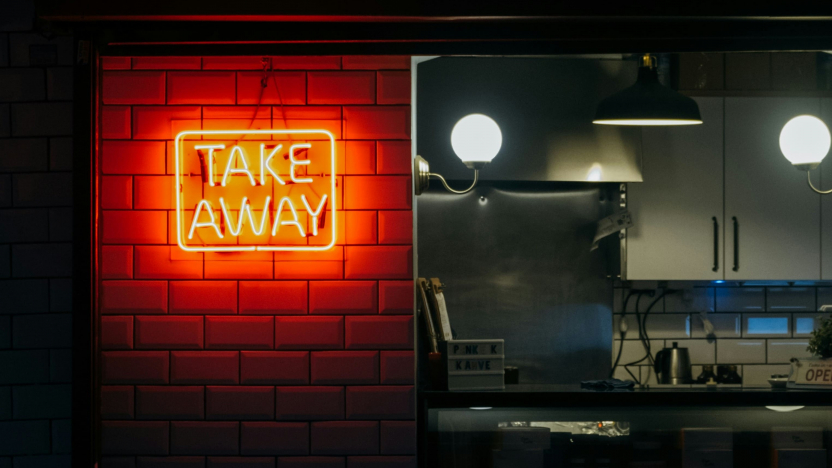Tesla and takeaway in trademark reputation dispute

The UKIPO recently handed down a favourable decision for the car giant Tesla which successfully invalidated a UK trademark registration for TESLA CHICKEN & PIZZA held by a small fast food shop.
These types of ‘David versus Goliath’ cases often make the news in the UK. For brand owners and IP rights holders, however, the decision touches on a number of important legal principles, including the (sometimes large) nuances between trademark reputation and common law misrepresentation, the concept of anticipatory goodwill, and UK common law goodwill with pre-trading advertising.
Background
Takeaway owner Amanj Ali registered UK trademark TESLA CHICKEN & PIZZA for food and drink services in Class 43 in August 2020 and relied upon the registration to oppose UK trademark applications for TESLA (word mark and stylised) which the car company had filed for restaurant and takeaway services also in Class 43.
As a counterattack to Ali’s oppositions, Tesla applied to invalidate the earlier TESLA CHICKEN & PIZZA registration. However, the main basis of the car company’s earlier rights did not include any earlier registration covering Class 43. Tesla, therefore, claimed reputation in its automobile goods and services (Classes 09, 12, 36 and 37), but also unregistered rights in the UK for its ‘reputation goods’ and alcoholic beverages and restaurant services. A bad faith ground was also added.
Goodwill in the UK
In its pleadings and submissions, Tesla claimed to hold goodwill in a variety of goods and services, including ‘automobiles, batteries to supply electric power to motors for electric vehicles, maintenance and repair services for automobiles, financing automobiles,’ but also ‘alcoholic beverages’ and ‘the provision of food and drink.’ For the alcoholic beverage goods and restaurant services, Tesla suggested its goodwill was an ‘anticipatory goodwill’.
The evidence filed by Tesla led to a finding that the car company enjoyed goodwill in the mark TESLA for automobiles (at large), related maintenance and repair services, and car batteries.
To evidence its goodwill for alcoholic beverages, Tesla filed a 2018 tweet by Elon Musk mentioning a TESLA-branded tequila: “Teslaquila coming soon…”, and a later published article in The Sun about sales. Examining the evidence, the Hearing Officer deemed the tweet wholly insufficient and the article was found to be regarding sales in the USA, so no goodwill in the UK had been evidenced. This part of the grounds therefore failed.
In relation to restaurants, Tesla filed evidence of another tweet by Elon Musk from 2018: “Gonna put an old school drive-in, roller skates & rock restaurant at one of the new Tesla Supercharger locations in LA.” This was derided by the Hearing Officer as even weaker than the tequila evidence and failed too. Therefore, no protectable (anticipatory) goodwill rights in the UK were found for alcoholic beverage goods and restaurant services.
This serves as a reminder to IP owners that the general legal position is mere advertisement is not enough to generate goodwill in the UK (Maxwell v Hogg, 1867). A business needs to have commenced trading of the goods or services, and while the Courts have relaxed this somewhat so pre-traders can claim goodwill, there is still a threshold to be met with ‘extensive’ advertising required (Allen v Brown Watson, 1965, BBC v Talbot Motor Company, 1981).
However, the evidence filed by Tesla can be seen as a lesson of how this type of goodwill could exist. Using Twitter as an example, if Musk were to have tweeted about a rebrand to X and drawn up extensive hype over weeks or months, it could have led to a finding of anticipatory goodwill in X.
Trademark reputation and misrepresentation
The decision also shows how goodwill under passing off common law grounds can be successful even when the activity is not in a common field e.g. restaurant services and automobiles.
For a misrepresentation to be found to be linked to the goodwill enjoyed, a type of ‘deception’ is usually required; this is generally difficult to evidence.
To reach this successful outcome for the car company, the Hearing Officer explored the realities of the electric car market and its average consumers. It was found a commercial probability that Tesla could provide food and drink outlets in the vicinity of electric car charging facilities in the UK.
Both a link and misrepresentation were deemed to exist. Ali’s intended use in the UK meant there would be a chance that one of his restaurants could be in close proximity to the Tesla charging stations. Therefore, customers would be deceived into believing they are economically linked, so a goodwill misrepresentation was also found.
Bad faith
Ali requested £750,000 in consideration for assigning his TESLA CHICKEN & PIZZA registration to Tesla. That brings us to bad faith.
Bad faith is dealt with very seriously and has a high evidence and facts threshold for the ground to succeed with the UKIPO and UK Courts.
Ali had accepted in his Counterstatement that Tesla enjoys a reputation for cars and the Hearing Officer disagreed with Ali’s submission that TESLA is a Serbian surname and as such was not coined by Tesla. As such, it was found that the TESLA CHICKEN & PIZZA name was coined to ride on the coattails, reputation, and fame of the TESLA sign, or to block the car company’s entry into the restaurant market, and ultimately to unfairly extract financial consideration for handing the mark over.
While Tesla’s claims to goodwill in TESLA for alcoholic beverages and restaurant services were unsuccessful, the reputation of the trademark for automobiles won the day, and Ali’s registration was invalidated (cancelled) in its entirety.
Consult your Novagraaf attorney, or contact us for end-to-end trademark support including guidance on clearance searching, filing strategy, enforcement, and more.
Megan Taylor is a Trainee Trademark Attorney at Novagraaf in the UK and Luke Portnow is a Chartered UK Trademark Attorney at Novagraaf in the UK.